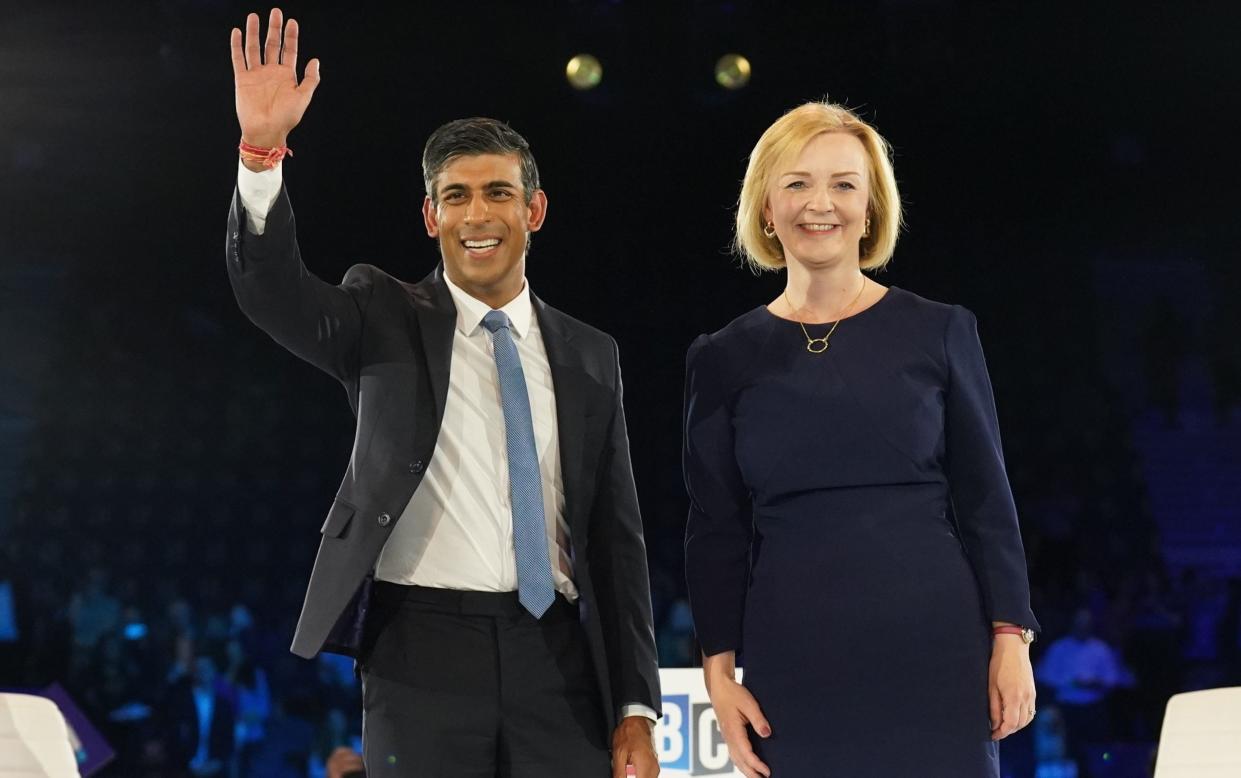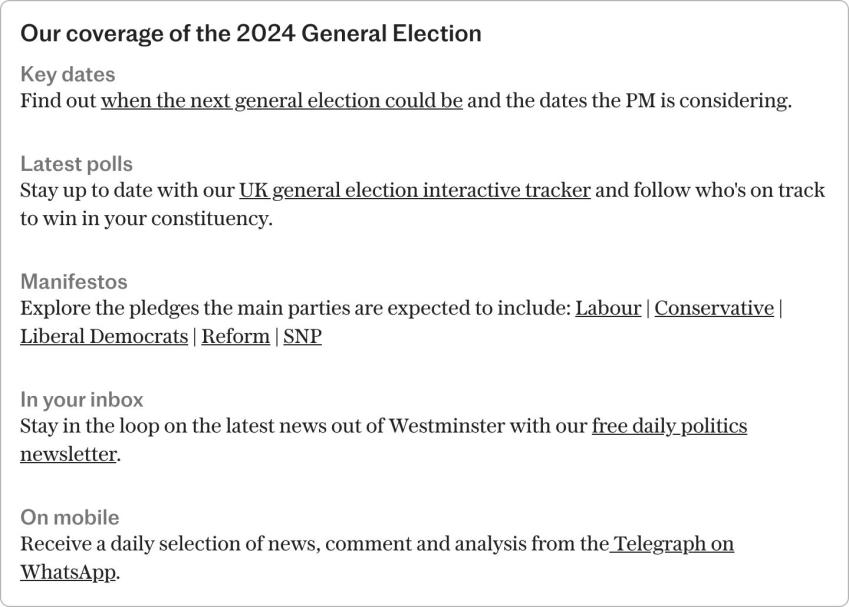Tory members could lose final say over new party leader

Conservative party members could lose their final say over who becomes Tory leader as senior figures weigh up whether to change the rules if they suffer an election defeat.
Two Cabinet ministers have expressed interest to The Telegraph about diluting the voting power of members given criticism over how the grassroots selected Liz Truss in 2022.
Similar arguments have been made in public and private by influential Tories in the last year amid frustration at how Ms Truss’s premiership backfired, sending the party’s opinion poll rating plummeting.
While Tory candidates are insisting it is still possible to win the general election next Thursday, privately many are braced for defeat, with minds turning to what may come afterwards.
The days and weeks ahead, should there be a defeat, are shrouded in uncertainty, not least because it is unclear which previous Tory MPs will be returned to Parliament.
Rishi Sunak is under pressure from some of those around his Cabinet table to stay on as leader until the party conference in October to allow for a “period of reflection”.
That approach was taken by Lord Howard in 2005 when he oversaw a Tory leadership campaign of half a year that eventually led to Lord Cameron winning the role and going on to take the party back into government.
But other Tory MPs expect Mr Sunak to swiftly announce he will step down as party leader, possibly by the end of Friday, if the results make clear there has been a resounding defeat.
That approach has been taken by party leaders before. In 2015 Labour’s Ed Miliband, the Liberal Democrats’ Nick Clegg and Ukip’s Nigel Farage all quit the day after the election.
But the question of how Mr Sunak’s successor would be picked is increasingly becoming a point of discussion among some Tories turning their mind to a rebuild after the vote.
Currently, under an approach brought in by Lord Hague, MPs whittle leadership candidates down to a final two but it is the membership which then decides the winner.
However, some Tory MPs became disillusioned with that approach after members selected Ms Truss over Mr Sunak, who had more MP backing than his rival.
When she resigned after a mis-firing mini-budget, the contest rules were tweaked in such a way that led to Mr Sunak becoming Prime Minister in the end without a members’ vote.
One Cabinet minister floated inverting the current system: “Maybe members provide the runners and riders [for the leadership] and then the MPs would decide.”
Another said they were not sure letting members pick Mr Sunak’s successor was a “good idea”, saying that MPs “know our colleagues quite well” and therefore could be better judges.
Some prominent Tories, including Lord Hague and Lord Howard, have publicly argued in the past that the membership’s role in picking the leader may need to be scaled back.
Sir Graham Brady, the outgoing 1922 Committee chairman, argued in a leaked recording published by The Telegraph earlier this year that members should only get the final say on leaders when the party is in opposition and not in government.
But any attempt to dilute the Tory grassroots’ say over the leadership is sure to provoke a backlash from some members, given it would amount to losing influence to shape their party.
It is also unclear who, exactly, would be making the choices about a succession race if the Tories lose the election next week and Mr Sunak announces his resignation.
If Mr Sunak decided to step down with immediate effect and handed over to an interim Tory leader - the name of Oliver Dowden, the Deputy Prime Minister, has been floated - who would be the decision-maker?
The other two figures alongside the leader who often help decide the rules for Tory leadership contests are the party chairman and the 1922 chairman.
But the current chairman, Richard Holden, is at risk of losing his election battle, according to some polling analysis. And Sir Graham is both standing down as an MP and 1922 chairman, meaning a new chairman will need to be appointed after the election.
It means, should defeat hit the Tories on Thursday, little is clear about when a successor would be picked, how, and what say the party members would get.


 Yahoo News
Yahoo News 
